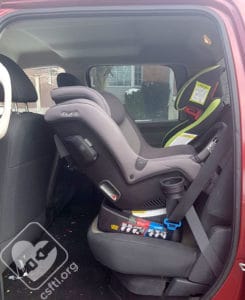Car Seat Basics: Prevent the Car Seat from Tipping or Tilting
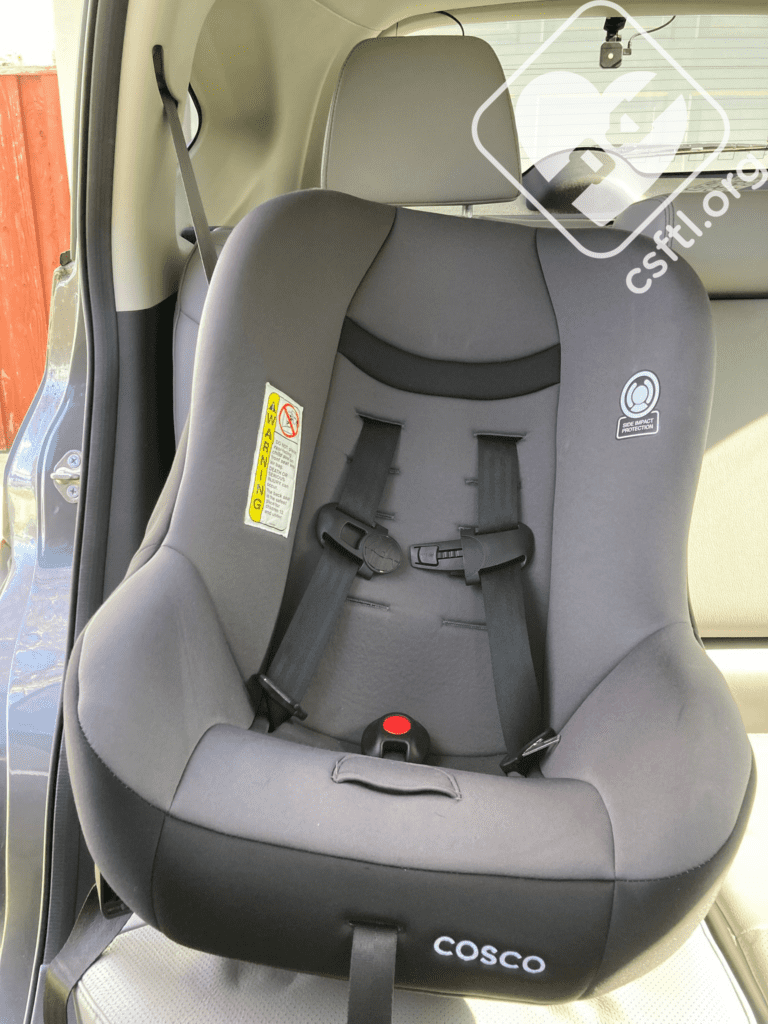
(Last Updated On: March 14, 2023)
Tilting or tipping car seat
Have you ever installed your child’s car seat using the vehicle seat belt and realized that tightening the seat belt has caused the car seat to tilt?
Tilting or tipping can be a common problem when installing a car seat with the vehicle seat belt if the belt is pulled the wrong way. It seems easy, like there’s only one way to pull on a vehicle seat belt to make it tighter but there are a couple of different ways to go about it.
The Problem
Many car seat manuals tell you to lock the retractor and tighten the seat belt. Many caregivers interpret that instruction to mean that they should pull up on the shoulder portion of the seat belt and feed it back into the retractor (that’s the thing that makes the clicking sound when the seat belt is locked). This will can end up forcing the shoulder belt to pull up on the car seat itself and cause the car seat to tip. This is more common with lighter weight car seats — heavier car seats tend to help to keep themselves down on the vehicle seat.
Tipping or tilting can be annoying and might be uncomfortable for the child but most manufacturers do have an allowable range of angles. They aren’t necessarily comfortable for the child so we’ve got some suggestions on ways to resolve or prevent this issue.
Working Toward a Tilt-Free Installation
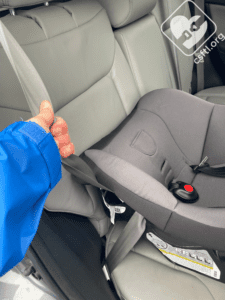
Fixing a tilting or tipping car seat
If you’re plagued by a tipping car seat, we have some steps that can help avoid tilting your seat when installing.
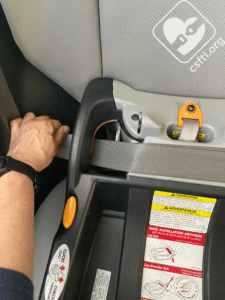
Fixing a tilting or tipping car seat
Try pulling outward on the shoulder portion of the seat belt, keeping the belt flat rather than at an angle while removing the slack. This small change will allow you to remove the slack from the belt but shouldn’t cause the seat to start tilting.
Once the slack is removed from the seat belt, let the vehicle seat belt retract on its own — gently guide it back into the retractor.
Check for movement at the belt path. If there’s less than one inch of movement when giving the seat a firm handshake at the belt path, the installation is secure.
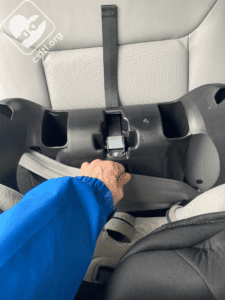
Fixing a tilting or tipping car seat
Another option to avoid tilting is to remove part of the cover to access the belt path from inside the seat, then pull up on the shoulder belt from inside the seat instead of outside. This will keep the pressure on the belt even.
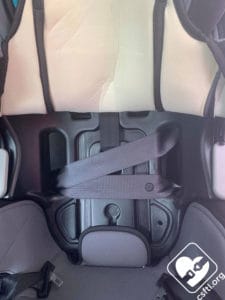
Access the belt path from inside the seat
If you have a convertible or combination seat, if you can open up the seat cover you can pull slack out from inside the seat and avoid the tilt.
Tilting isn’t Always a Problem
Sometimes car seats will tilt a bit due to the contour of the vehicle seats. If your vehicle seat isn’t flat, chances are the car seat will sit higher on one side than the other causing a slight tilt.This isn’t a problem as long as the entire car seat base is touching the vehicle seat and you can get a tight install of the car seat with less than one inch of movement at the belt path.
When you install your car seat, the place where you apply pressure to remove from the seat belt is important in making sure you don’t end up with a tilted car seat.


